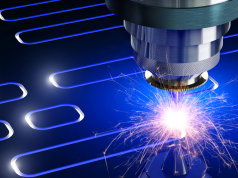
Finding the best CPU that meets your computing needs yet fits within your budget can be an intimidating task, especially if you are not familiar with the technology. Fortunately, there are some simple guidelines you can follow to help you choose the perfect CPU which we will discuss in detail.
By understanding what factors to consider when selecting a CPU, you will be able to make an informed decision about which processor is right for you.
Understand Your Computing Needs

When looking for the best CPU, it’s important to first understand your computing needs. Determine what specific computation tasks you want to perform on a regular base such as video editing, streaming, rendering, etc.
Depending on what you plan to do with your computer such as playing games or running computationally demanding software applications, you may need a more powerful type of processor than someone who plans to use their machine primarily for web browsing and word processing.
Establish a CPU Budget
The next step to finding the best CPU is establishing a budget. CPUs come in a wide range of prices ranging from sub $100 options to thousands of dollars, so it’s important to have an idea of how much you can comfortably spend on your processor before you start searching for one.
Identify the minimum and maximum amount you are willing to spend as this should help narrow down your choices when it comes to selecting the perfect CPU for your computer.
Intel and AMD
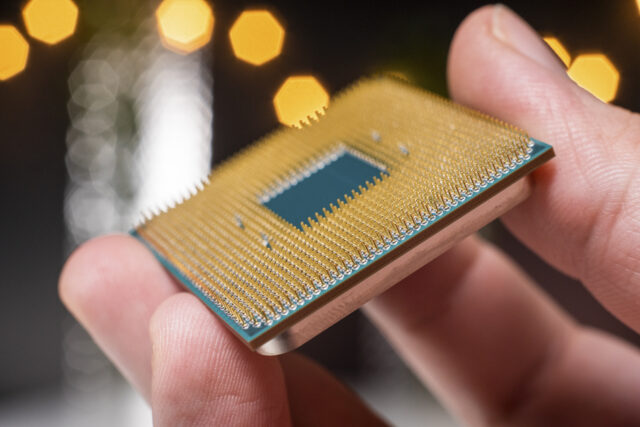
Two of the most popular CPU manufacturers are Intel and AMD. Both Intel and AMD produce a wide range of processors from budget-friendly offerings to high-end models. Consider what features you need and compare CPUs from both companies before making a decision on which one will work best for your computing needs.
CPU Generation and Motherboard Socket
It is also essential to consider the generation as well as the socket compatibility of a CPU. The generation of the processor you choose will determine which type of motherboard socket your CPU is compatible with. Make sure to check and double-check that your chosen CPU and motherboard work well with one another before purchasing them.
Almost every year or two, new generations of CPUs are released by Intel and AMD. New CPU generations include improved architecture and performance, increased power efficiency, and updated features that older generations may not have. But the older generation CPUs are usually considerably cheaper than the latest generation with some still providing similar performance.
A CPU socket is the physical interface between a processor and a motherboard. Different types of processors are designed to work with different types of motherboard sockets.
A specific motherboard socket may be supported for multiple CPU generations. For example, both Intel 12th and 13th generation processors utilize the LGA1700 socket. While their predecessors the 10th and 11th processors are compatible with the LGA1200 socket. The same thing goes for AMD processors as well. So, make sure the CPU and motherboard you choose are compatible in terms of generation and socket.
5 CPU Specifications (Specs) You Should Consider
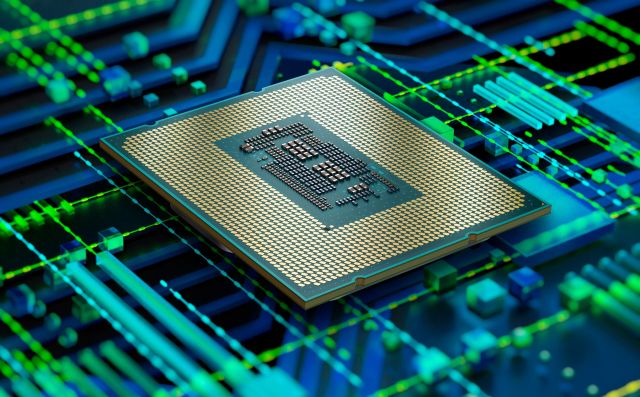
1. Cores and Threads
The number of cores and threads a CPU has will determine how many tasks it can handle simultaneously. Higher core and thread counts are ideal for multitasking as more cores/threads mean the processor can handle more tasks concurrently.
Hence, if you are someone who plans to run intensive applications like video editing software or rendering, then you should opt for a processor that has more cores and threads. But if you are just browsing websites or using applications like word processors, a simple 4 to 6-core processor may suffice.
2. Clock Speed
The clock speed is how fast the CPU can process instructions. It is measured in GHz (gigahertz). The higher the clock speed, the faster the processor will be at executing commands.
A CPU’s base clock determines its static/default speed while its boost clocks are used to temporarily increase this performance when needed. For example, if you’re running an application that requires a lot of processing power your processor may increase its clock speed with boost technology to get better performance for that task.
3. Cache Size
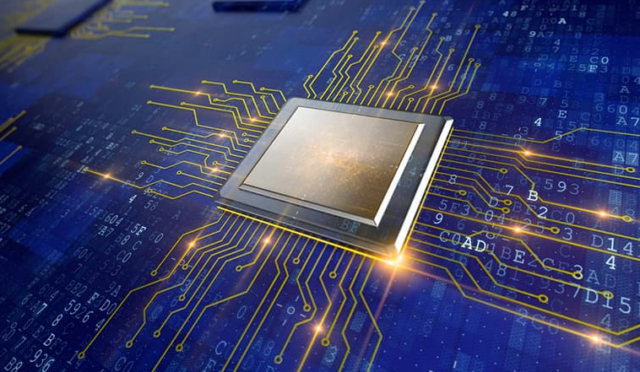
The cache size is the amount of memory the processor stores in order to quickly access frequently used data. The larger the cache size, the more efficiently a CPU can store and process information.
So, if you intend to do a lot of multitasking with high-end applications then look for a processor that has large L3 cache sizes. This will enable it to keep up with your workload.
4. Instructions per Cycle (IPC)
IPC is a measure of how efficiently the processor can execute instructions. The higher the IPC, the more efficient your CPU will be at performing tasks.
Ideally, if you want to maximize performance then look for processors with high IPCs and overall good architecture as these are usually considered the best CPUs on the market.
5. Thermal Design Power (TDP)
TDP is the CPU’s power consumption under the maximum theoretical load. A processor with a higher TDP rating will require a bigger, more powerful cooler to keep it cool and running at peak performance. A power supply capable of supporting the CPU’s TDP in addition to the other PC components is also needed.
Memory Support
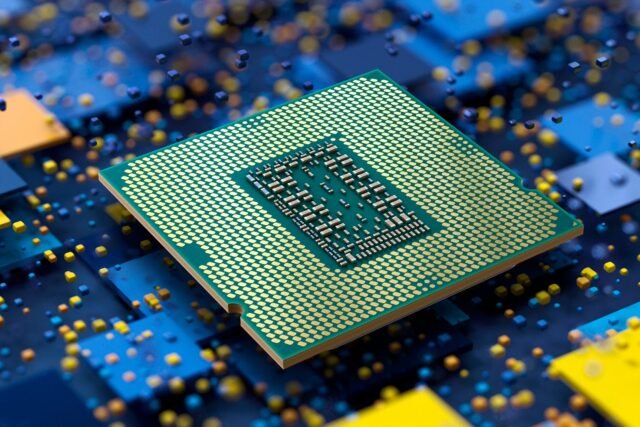
The type of RAM a processor supports is important as different CPUs are compatible with different types of memory. DDR4 is the most common type of RAM in PCs currently with DDR3 being its predecessor. However, DDR5 is quickly becoming the new standard as it is considerably faster than DDR4. DDR6 will be released eventually becoming the new standard and this cycle will continue until DDR technology is surpassed.
Therefore, make sure the CPU you choose supports the type of RAM that your motherboard uses. Also, take the time to understand what RAM speeds are ideal for your chosen CPU to function optimally.
Integrated Graphics (iGPU)
Integrated graphics (iGPU) is a processor feature that allows it to handle basic graphical tasks without the need for an external dedicated graphics card (GPU). This feature can be useful if you don’t want or plan to later buy a dedicated GPU. It is also useful for testing if your dedicated GPU has an issue.
Therefore, it is ideal to get a CPU with an iGPU, but if you are on a budget and or plan to buy a dedicated GPU, a CPU with an iGPU is not required and can be skipped to save a bit of money.
Overclocking
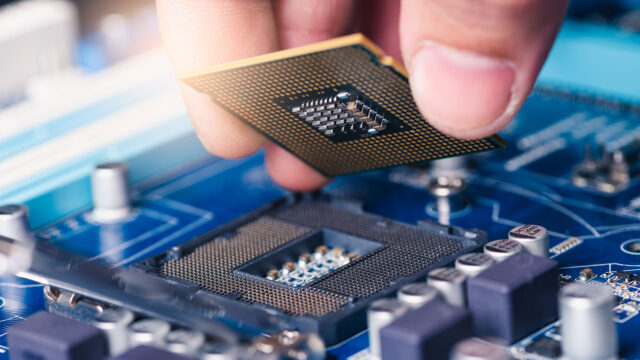
Overclocking is a process of pushing the processor’s performance beyond its stock speeds. This can be done by adjusting multipliers, voltage, and frequency settings in the system BIOS.
Overclocking is mainly performed by advanced users and enthusiasts who want to push their CPU to its limits for better performance and higher clock speeds. However, most users won’t need to overclock their CPUs so it is not a must that you choose a CPU with overclocking capabilities.
Tips for Choosing the Right CPU
- Determine your specific CPU computing use cases.
- Compare different CPU models from both Intel and AMD within your budget range capable of efficiently completing your determined computational use cases.
- Ensure the generation of the CPU is supported by the motherboard’s socket.
- Make sure you have a power supply and cooler that can support the CPU’s TDP
- Check out multiple third-party CPU reviews for reliable purchasing information.
- Buy your CPU from reputable vendors with good return policies such as Amazon, Newegg, and eBay.
Final Thoughts
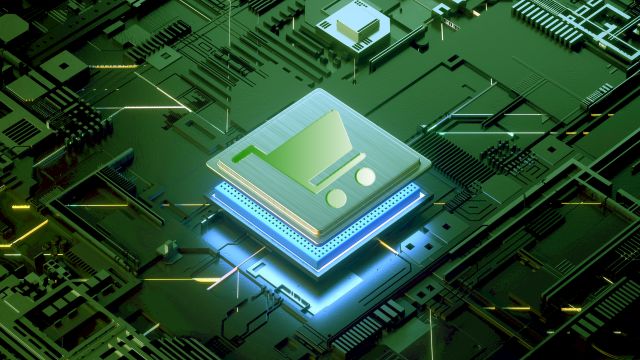
Finding the best CPU for your computing needs and budget can be a tricky endeavor. It is important to consider all of the information provided in this guide when selecting the best processor for you.
By taking into consideration the numerous CPU factors discussed, you will be able to make an informed decision that ensures you get the most value out of your purchase. Hopefully, this guide has been helpful in finding your perfect CPU. Good luck!





